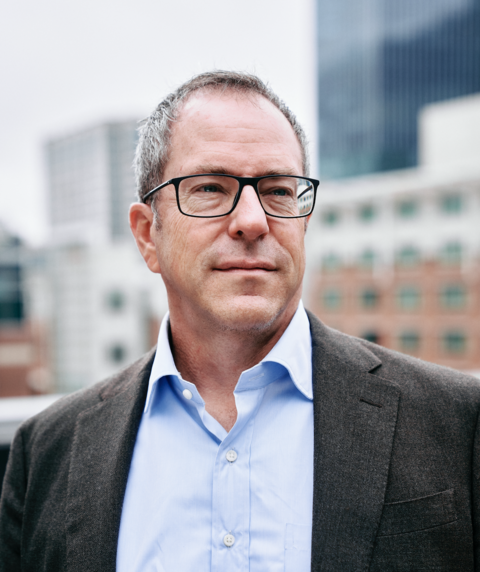Larry Heck, Ph.D.
AI and speech and language processing
Georgia Institute of Technology
Recruited: 2021
We’re all now used to having voicemails transcribed, speaking to our phone to ask for a song or directions or having our email remind us that we forgot to attach a file. Virtual assistants, powered by artificial intelligence (AI), have become ubiquitous in our lives.
The technology that supports these is based on AI-driven speech and language technologies, an area in which Larry Heck has been a pioneer.
Over his nearly 30 years in industry, Heck has played a significant role in most of the major available virtual assistants on the market. He founded the Cortana™ virtual assistant at Microsoft, led Samsung’s virtual assistant Bixby™ in North America, powered Viv Labs technology (founded by the inventors of Siri), served as a technical advisor to Yap Inc. (acquired by Amazon to initiate the Alexa™ virtual assistant) and founded Google’s Deep Dialogue group, a research effort behind the Google Assistant™.
While pursuing his Ph.D. at Georgia Tech, Heck built his first speech recognizer in 1987. His dissertation explored how to leverage speech algorithms for other signals such as machinery sounds and vibrations. For example, humans can listen to a metal-cutting tool and know it is about to wear out — could a machine also do this?
The idea of building a voice-enabled virtual office assistant was seeded in discussions between Heck and Adam Cheyer at the Stanford Research Institute (SRI), which Heck joined in 1991. Cheyer, who later founded Siri and Viv Labs, had developed the core platform that could alert a user about an email arriving from a specific sender. Heck extended this work to voicemail by creating a speaker verification/voice recognition technology.
This voice authentication work on the SRI office assistant, and later work for the National Security Agency, formed the basis of the award-winning Nuance Verifier™ that Heck transferred from SRI and developed at Nuance Communications. While serving Nuance as vice president of research and development, he led the company’s efforts on natural language processing, automatic speech recognition, and text-to-speech synthesis.
At Yahoo!, Heck oversaw the team responsible for the scientific development, analysis, and deployment of Yahoo web search, search monetization, content match advertising and display advertising algorithms. The algorithms yielded multi-billion-dollar annual revenues for Yahoo.
As chief scientist of speech for Microsoft, Heck co-founded the Cortana personal assistant and led research and advanced development of Microsoft’s speech engines for speech recognition, speech synthesis, conversational natural language understanding, dialogue management and natural language generation. At Google, he founded the Deep Dialogue group to conduct advanced deep learning research on conversational AI for the Google Assistant.
Most recently, Heck held a dual role of CEO of Viv Labs and head of Bixby North America with responsibility for Samsung’s Personal AI Assistant and the deployment of Bixby in North America.
Heck has served on the Georgia Tech College of Engineering advisory board and as a long-time member (and recent chair) of the Electrical and Computer Engineer advisory board. He was named Fellow of the Institute of Electrical and Electronics Engineers (IEEE) for leadership in application of machine learning to spoken and text language processing.
Georgia Tech presented Heck with the 2017 Academy of Distinguished Engineering Alumni Award. That same year, he also received the Texas Tech University Whitacre College of Engineering Distinguished Engineer Award. Heck has over 60 patents to his name and has published more than 150 scientific articles.
Research
- Application of machine learning to spoken and text language processing
- AI virtual assistants
- Entrepreneurship
Choosing Georgia
“Georgia Tech’s College of Engineering and College of Computing have profound strengths in academics and research. I look forward to building on GT’s success in a fast-changing field of engineering and advanced computing, as well as participating in the larger innovation and startup ecosystem in Atlanta and Georgia.”

